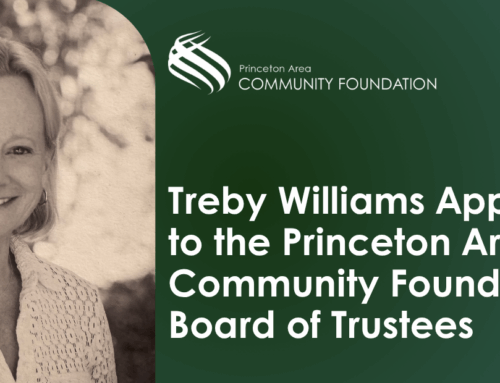by Eric Maywar
Owner, Classics Bookstore – Trenton, NJ
Social capital is a measure of the connections between members of a community. It is a measure not of just do you know your neighbors, but do you hang out with them. Do you bowl alone, or do you bowl in a league? It is the community equivalent of business networking events. Business people understand the power of networking–community people need to harness the same power.
Social capital is not just important in a touchy feely kumbaya way–fostering social capital produces tangible results. In communities where social capital is high, kids do better in school, more people volunteer, more people vote and other wise care about their city and there is less crime–all the things we in Trenton want to have happen. By hanging out in casual settings (not just at rallies, for example, but at a regular spades game), people increase their networks and when a problem arises, whether it is personal or community-wide, solutions are easier because there are more people to help solve it. The more diverse the group (by religion, by race, by age, by socio-economic class) the better, as it more dramatically expands the resources of the group.
For example, Classics Books has a Scrabble Club on Warren Street in Trenton. In 2009, 138 people played there, but there are 20-30 regulars. When one of the regulars was unemployed, another one of the other regulars was able to get her a job at his company. This happened twice. When the mural on Warren Street was vandalized, the club took up a collection. Several of the members noticed the need for a Trenton-focused literary magazine, and the Trenton Review was born. One of the members of the club starting a knit and stitch group at Classics, which in turn knitted and donated skull caps to the troops in Afghanistan. Whether personal or national, this group is able to pool their resources to address problems.
I know people who are frustrated in Trenton. They think they have great ideas, but nobody listens to them. Not coincidentally, they haven’t spent time developing social capital, getting to know the diverse groups in Trenton. They haven’t attended churches in each of the four wards. They haven’t socialized with people outside of their narrow group of acquaintances – people who might see things differently, who might disagree. Without developed social capital bridging these diverse groups, these people haven’t developed the credibility they need to be listened to.
If increasing social capital is the building block for solving Trenton’s most complained-about problems (education, crime, civic involvement), you know what you need to do. Join a choir, a knitting club, a book club, a dinner club, a Scrabble Club. And join a group where you get to meet new and diverse people. Fixing Trenton couldn’t be more fun.





